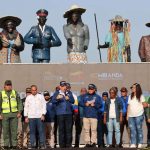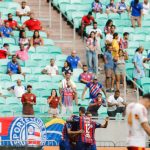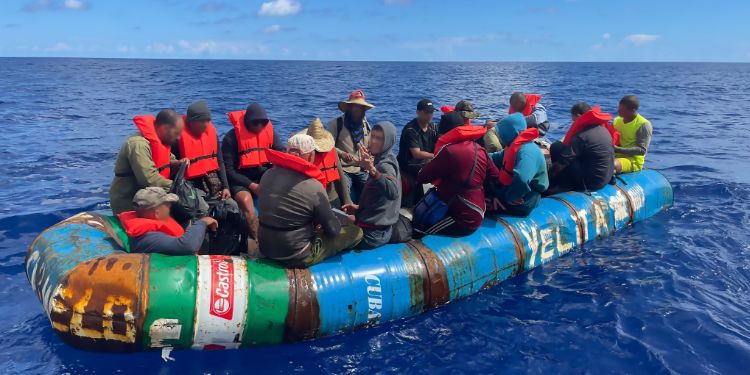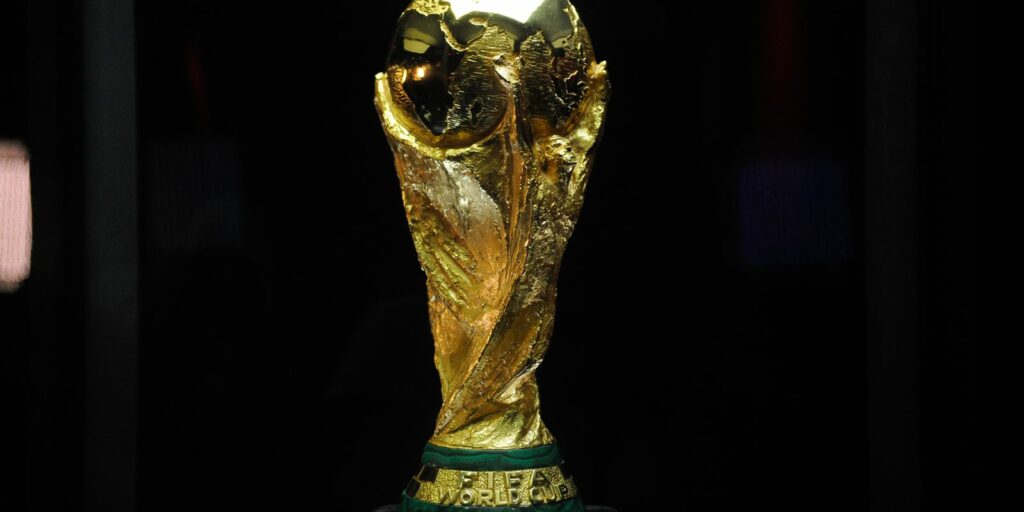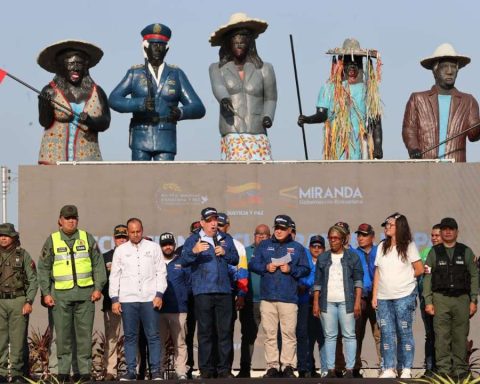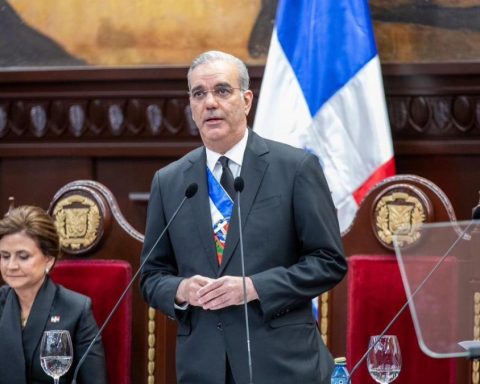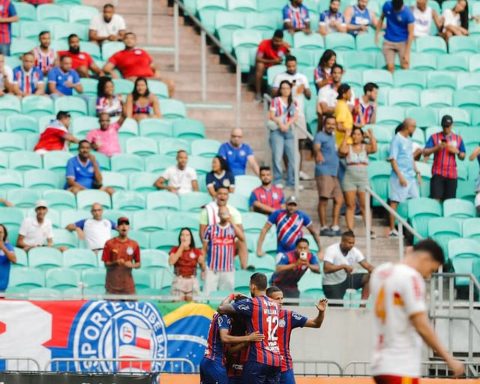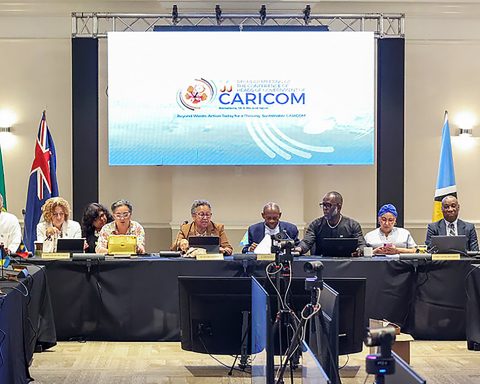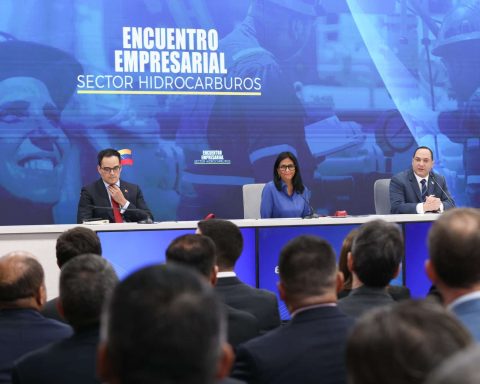Next December 25 will be the fifth Christmas that the civil builder Harry Prado Arrué (36) will spend away from his daughters, from his family. In fact, the youngest of 4 years, she had not yet been born the day her father’s life took an unexpected turn.
On the morning of June 7, 2018, Prado Arrué was arrested for his alleged participation —the day before— in a settling of scores between two rival gangs in La Pintana. Situation in which Corporal Oscar Galindo Saravia was assassinated.
His arrest and charges were based on recognition, by the victim and target of the shooting, Brayan Alvial Pozo, through a set of photographs that Carabineros showed him. A fact that Alvial Pozo later denied. In addition, he claimed never to have recognized Prado Arrué and never to have signed the act of recognition. The problem is that he did all this informally, he never made an official statement, he simply disappeared without reappearing. The trace of him is lost until today.
Looking for evidence, three expert opinions were commissioned with different specialists. They all concluded that the signatures were false. In other words, the witness never confirmed the recognition of Harry Prado at the crime scene. With this evidence and other testimonies, a complaint was filed —on March 8, 2021— against those responsible for the crime of falsifying a public instrument. The plaintiffs are Harry Prado and Pablo Soto Maturana, also convicted as a co-perpetrator of the murder of Corporal Galindo and whose signature on the acknowledgment document that places him at the scene is not legitimate either.
In charge of the investigation wasChief Prosecutor of the East High Complexity Prosecutor’s OfficeFelipe Sepulveda. The inquiries led him to accuse the deputy prosecutor of the Violent Crimes Prosecutor of the Southern Metropolitan Region, Rodrigo Chinchón Soto in charge of the Cabo Galindo case, and the OS9 policemen Rodrigo Molina Trujillos, Julio Muñoz Astete and Melanie Ortega Meza, who took the statement of the witness and they would have carried out the recognition lineup with photographs of the police card. The complaint was divided into two: one against the police and another against the prosecutor. The latter was closed, but today there is a reopening request —which must be reviewed— by the complainants. The case against the police is still under investigation.
From offender to victim
It all started on June 6, 2018. When the carabinieri Carlos Bravo and Oscar Galindo appeared unexpectedly in a passageway in La Pintana at the exact moment when a trio from the band “Los cogote de toro” attacked the member of “Los risas”, Brayan Alvial Pozo, who was injured and fled from the place.
At first, the Carabineros thought that Alvial was part of the attackers and detained him as a suspect. In this process, Brayan Alvial assured —according to the psychologist of victims and witnesses Raúl Carvacho, who was taking the statement together with prosecutor Chinchón— that he suffered illegitimate pressure to confess.
However, after it was determined that Bryan Alvial was the victim and not the perpetrator, —according to what appears in the investigation— he became the key witness who recognized through photographs Harry Prado and Pablo Soto at the scene .
The day after the shooting, the confessed perpetrator of the crime, Daniel Rojas Yáñez (alias Danielito) turned himself in to the PDI. On his seized cell phone appeared the photographic records of those who were with him that day and whom Rojas Yáñez identified as companions: Diego Salvo Cereceda and Cristopher Morel Vásquez. “These co-authors have never been investigated,” says Harry Prado’s lawyer, Claudia Tello.
To identify more participants in the crime along with Danielito, Carabineros searched for associated crimes.
Harry Prado had met Danielito through a nephew, they had acquaintances in common. And they had been pulled over together at a traffic stop several years earlier. In addition, Prado had a minor sentence in 2006. These data included him in the photographic set of suspects.
fake signatures
The complaint for falsification of a public instrument against those found responsible, indicates that during the development of the investigation of the South Metropolitan Prosecutor’s Office, Prado requested, through his defense, on several occasions, recognition proceedings in a lineup of prisoners considering that only one person He would have recognized him through a photographic set and this had been done in front of two police officers at the OS9 premises, (Exequiel Fernández No. 1153, Nuñoa). “My request that the witness victim BAAP (Brayan Alvial) participate in an examination procedure, was never carried out.”
During the oral trial, the aforementioned victim was introduced by the prosecutor, but indicated that he did not wish to make a statement for his safety. “Her testimony of her was my only hope that she could observe me directly and clarify that I had no participation in the facts that are imputed to me,” adds Prado.
In the letter it is stated that through a fellow prisoner, whose defense attorney was the same one that represented Alvial, he had expressed his interest in talking with him. “The professional Jeanette Cofré Soto visited him on Saturday, January 16, 2021. She then told him that although his defendant had not given a statement in court, he was aware that the signatures of the records of the examinations carried out before police personnel on the day June 6, 2018, they were false since he told him that he had never signed them. That same day, I explained to the professional that my defense would also present it as testimonial evidence at the trial stage and that my only wish was that she could see me since I was sure that she could clarify that I was never in the place of the facts,” says Harry Prado in the complaint.
This was not possible because Alvial was not available. Likewise, the defender Jeanette Cofré Soto, according to what appears in the file, would have confirmed to the family friend Aníbal González Terán that the signatures of the acknowledgment certificates were not signed by Alvial Pozo and that said circumstance was known to the prosecutor Rodrigo Chinchón Soto , as her client would have pointed it out in front of her.
“It is worth noting that the minutes that BAAP would not have signed and that were allegedly falsified, correspond to the acknowledgments of my person and of the co-defendants Pablo Soto Maturana and Daniel Rojas. These were carried out on June 6, 2018 by Corporal Julio Muñoz Astete and witness officer Corporal 1 Melanie Ortega Meza, in the Chilean Police Unit, Criminal Investigation Department Department. Invet. of Org. Criminal, located in the commune of Ñuñoa”, stipulates the complaint.
“When the trial began, we were unaware that the signatures, both on the acknowledgment certificate and on the statements, were false. To carry out the expert opinion, we went through the portal of the judiciary looking for signatures from Bryan Alvial to compare. Fortunately, he was a victim with many causes and in the system there were several sponsorships that had his real signature stamped ”, explains Claudia Tello.
The first analysis was made by the expert Marcela Meza Navarrete, who concluded that “the signing of the acknowledgment certificate has a high probability of not belonging to the authorship…”.
The second expert opinion was in charge of the documentoscopy expert Rodolfo Sáez Muñoz, who pointed out that it did not come from the hand of Brayan Alvial.
The third calligraphic expert report was made by Miguel Angel Acuña, who pointed out that the signature did not belong to the defendant. With that they filed the complaint for forgery.
In the investigation carried out by the eastern metropolitan prosecutor’s office, the PDI Central Criminalistics Laboratory confirmed in an expert opinion that Brayan Alvial’s signature is false. But something else came up, after examining the documents it was concluded that the signature of the acknowledgment document of the other convicted person as co-author, Pablo Soto, is also false.
shot under doubt
After three years of investigation, Prado Arrué was sentenced to 18 years in prison.
In the sentence, the judges valued the proof of recognition by Brayan Alvial and the presence of barium in the hands of Prado. An expert opinion that the defense questions with its own investigations. “When a shot is fired, traces of barium, antimony and lead remain. This combination must be present to confirm a shot,” Tello explains.
According to the file, the expert Rodrigo Marcos determined that although “in both palms there were barium levels, they do not meet the scientific standard for the detection of gunshot residue.”
The expert report prepared by Labocar was positive for barium, but negative for lead and antimony. Prado Arrué’s defense argued that the barium is explained by the defendant’s construction work. In addition, as proof he added “that the civil constructor maintained contracts for works of more than one billion pesos. He didn’t need to commit a crime. In fact, he always cooperated, freely handed over his cell phone and computers for expertise. His alibi was to be playing an online video game at her house, but it was not considered because —according to prosecutor Chinchón—anyone could have been using the online account, ”adds the lawyer.
Another point, which the lawyer points out, is that the active police officer Carlos Bravo —who accompanied Corporal Galindo— “never identified Harry on the photographic set and even less in the trial. However, the sentence of the judges of the sixth court of the oral criminal trial of Santiago María Rojas Contreras, Macarena Rubilar Navarrete and Julio Castillo Urra stated the opposite.
From the High Complexity Prosecutor’s Office they only responded that the investigation continues to develop.







